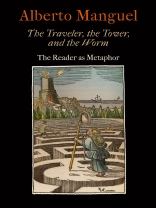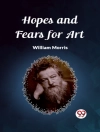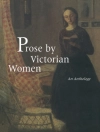As far as one can tell, human beings are the only species for which the world seems made up of stories, Alberto Manguel writes. We read the book of the world in many guises: we may be travelers, advancing through its pages like pilgrims heading toward enlightenment. We may be recluses, withdrawing through our reading into our own ivory towers. Or we may devour our books like burrowing worms, not to benefit from the wisdom they contain but merely to stuff ourselves with countless words.
With consummate grace and extraordinary breadth, the best-selling author of A History of Reading and The Library at Night considers the chain of metaphors that have described readers and their relationships to the text-that-is-the-world over a span of four millennia. In figures as familiar and diverse as the book-addled Don Quixote and the pilgrim Dante who carries us through the depths of hell up to the brilliance of heaven, as well as Prince Hamlet paralyzed by his learning, and Emma Bovary who mistakes what she has read for the life she might one day lead, Manguel charts the ways in which literary characters and their interpretations reflect both shifting attitudes toward readers and reading, and certain recurrent notions on the role of the intellectual: ‘We are reading creatures. We ingest words, we are made of words. . . . It is through words that we identify our reality and by means of words that we ourselves are identified.’
Daftar Isi
Introduction
Chapter 1. The Reader as Traveler: Reading as Recognition of the World
Chapter 2. The Reader in the Ivory Tower: Reading as Alienation from the World
Chapter 3. The Bookworm: The Reader as Inventor of the World
Conclusion: Reading to Live
Notes
Acknowledgments
Tentang Penulis
Alberto Manguel is the award-winning author of numerous books celebrating the written word, including bestsellers A History of Reading, The Library at Night, and The Dictionary of Imaginary Places.












